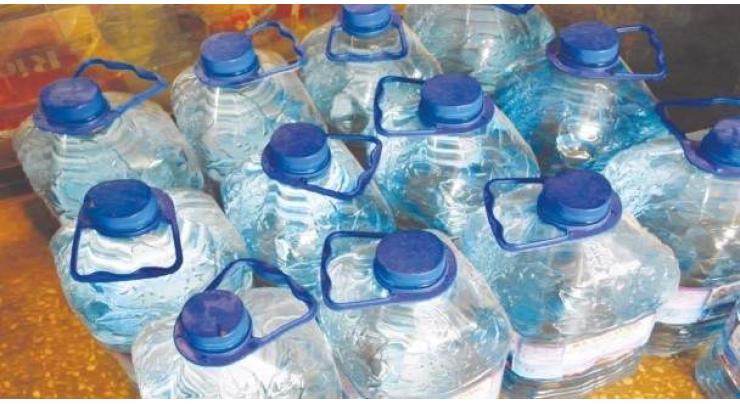
- Home
- Pakistan
- News
- Pakistan Council for Research in Water Resources (PCRWR) revives all water testing laboratories
Pakistan Council For Research In Water Resources (PCRWR) Revives All Water Testing Laboratories
Muhammad Irfan Published November 14, 2019 | 03:05 PM

Chairman, Pakistan Council for Research in Water Resources (PCRWR) Dr Muhammad Ashraf Thursday said his council has made all the water testing laboratories functional which will help ensure provision of clean drinking water to citizens
ISLAMABAD, (UrduPoint / Pakistan Point News - 14th Nov, 2019 ) :Chairman, Pakistan Council for Research in Water Resources (PCRWR) Dr Muhammad Ashraf Thursday said his council has made all the water testing laboratories functional which will help ensure provision of clean drinking water to citizens.
Out of 25 water testing laboratories of PCRWR across the country,18 laboratories were dysfunctional since last many years and over 200 employees working there were shifted to the other departments.
Talking to APP, Dr Ashraf said the Minister of Science and Technology Chaudhry Fawad Hussain soon after assuming charge of his office decided to make all the laboratories functional to provide direly needed facility of water quality testing.
Earlier, only six labs of PCRWR in Islamabad, Peshawar, Lahore, Tandojam and Bahawalpur were functional however, the remaining labs were not operational since long.
These all labs have started working again with transfer of employees back to their offices, Dr Ashraf said and hoped these labs would help make the authority self sufficient and help in revenue generation, he said.
PCRWR has also developed microbiological testing kits, low-cost arsenic detection testing kits and production of chlorination and disinfection tablets for ensuring provision of clean drinking water, he said.
The council is offering water quality testing and advisory services as a continuous activity for the detection and source localization of pollution and quantification of pollutants by using international standard methods for assessment of drinking water (potable, bottled and mineral water), irrigation water, industrial effluents, aquatic life and eco-system (fisheries etc.), filtration systems, recreational pollutants and environmental impacts.
/395
Related Topics
Recent Stories

Over 20 pairs of shoes stolen from Islamabad’s Parliament House mosque

SDPI, Ethiopian Embassy forge collaboration to promote Green Legacy Initiative

Karachi receives maiden direct flight of Azerbaijan Airlines from Baku

Rupee bounces back; gains 13 paisa against dollar

Rawalpindi woman gives birth to six babies

Kenya Army Chief Francis Ogola among nine others who died in Helicopter crash

Saudi FM’s visit positive, constructive one: FO

Partners join hands for alternate use of marble, granite slury

Three Filipinos dead in UAE floods: officials

Hania enjoys vacations in London

COMSTECH distinguished scholar visits Malaysia

IMF Officials assure support to Pakistan’s economy
More Stories From Pakistan
-

Over 20 pairs of shoes stolen from Islamabad’s Parliament House mosque
10 minutes ago -
Royal College of Physicians urges tighter e-cigarette regulations
14 minutes ago -

SDPI, Ethiopian Embassy forge collaboration to promote Green Legacy Initiative
10 minutes ago -
FESCO imposes Rs.774.9m on 7,425 electricity thieves in 223 days
14 minutes ago -
FESCO issues shutdown programme
14 minutes ago -
25 PEF students to take part in prestigious online course
24 minutes ago
-
Rangers, Police conduct joint operations, apprehend suspects in riverine areas
24 minutes ago -
Six held with 240 kites in Sargodha
24 minutes ago -
FGCTA commends role of education ministry for granting higher time scale
24 minutes ago -
CDA urges residents to approach helpline in case of emergency during rainfall
34 minutes ago -
817 held for selling roti at higher rate in 5 days, meeting told
44 minutes ago -
200 bags poppy dust seized, accused arrested
44 minutes ago

